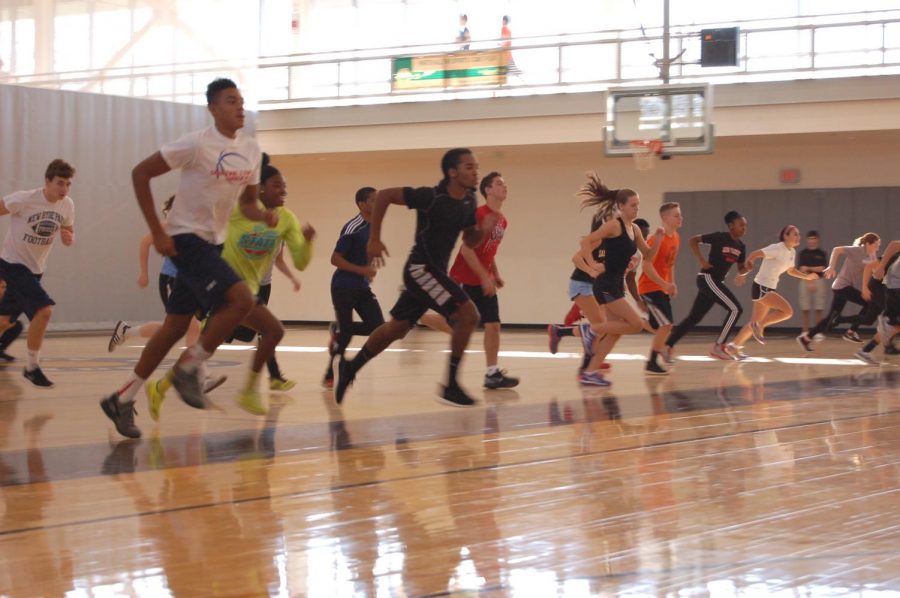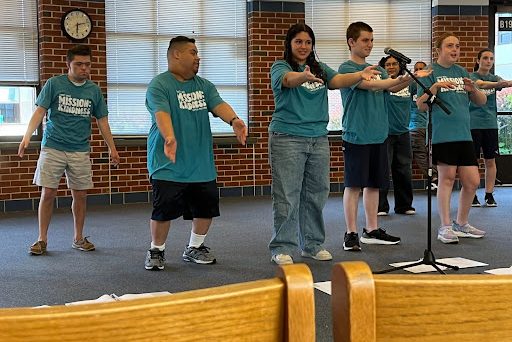Fitness Testing: It’s NOT Necessary
November 2, 2017
Since we were little, having grown up here in Connecticut, we’ve become used to taking part in those annoying and/or exciting fitness tests in gym class. It all really depends on the person. And that’s the problem. We all know that managing our health among other things as students is crucial when it comes to growing up successfully and keeping up with the rest of the world, but we are all so different. Because all of our bodies function differently, is there really a fair way to measure somebodies athletic abilities with a very specific procedure? For example, is doing curl-ups the most effective way of analyzing somebodies abdominal strength and endurance? Many would agree that fitness testing in gym class is indeed a waste of time:
“I don’t think that it’s entirely fair because the grading is based on how far you can bend and how far you can run and that’s not necessarily a good representation of a person’s fitness level,” says Mariana, a junior at SWHS. “It should be more based on how much effort each student puts in. I think it’s comparable to standardized testing which is just giving feedback on if a kid can memorize how to do something and spit it out again like a machine instead of seeing how well they understand the problem. There should be a measure of how much they can do in the beginning of the year and at the end and the improvement should be the determining factor of their grade instead of how many reps they do because I’m sure the averages are based on an athletic person’s scores and not everyone does sports so they don’t necessarily build up their endurance and strength all the time.”
Many people believe that it is necessary to include the fitness testing into the physical fitness curriculum, but that it should involve tests with different exercises that represent the same strengths. Some students even believe that tests should be done according to different body times, BMU’s, eating and sleeping habits, height, size. People believe that the differences between gender should not be the only thing that identify your scoring range.
According to junior at SWHS Grace Amondi, “It’s not like we’re ever gonna need that in real life. It’s just an excuse to make people who aren’t athletic feel bad about themselves. And how you run or do pushups shouldn’t have to affect your grades.”
If so many people are bothered by the grading process for this, why aren’t we doing anything to make success in gym more equitable for a diverse community of students. It is strongly encouraged that fitness testing grades to not effect such a large portion of a student’s grade, but that their enthusiasm to participate and/or to improve is what counts. Revealing your interest and effort in doing well with your overall health is what should prove you eligible for a good grade in gym.
“It should be graded on participation, not skill. Not everyone has the skill of being sporty just like not everyone has the skill of being good at math.”







